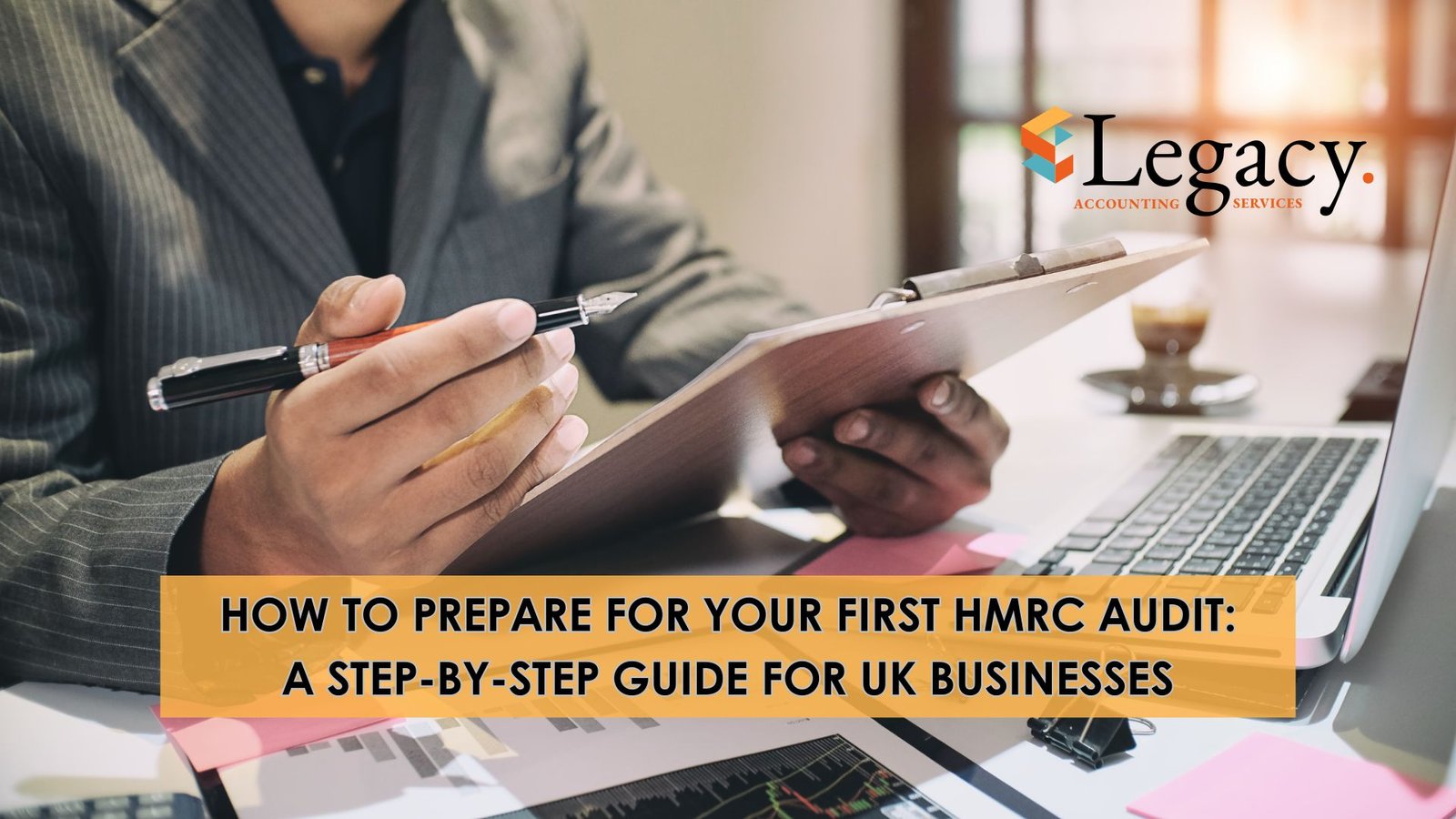Expert Advice for UK Businesses and Sole Traders
Facing your first HMRC audit can feel intimidating—but with the right preparation, it doesn’t have to be. Whether you’re self-employed or running a limited company, being audited by HMRC is a possibility every UK business owner should be ready for. With penalties, backdated tax bills, and stress on the line, preparation is key.
This guide covers everything you need to know about how to prepare for an HMRC audit, what to expect during the process, and how to avoid costly mistakes.
Why HMRC Might Audit You
HMRC audits—officially called “compliance checks”—aren’t always random. There are common audit triggers that might flag your business for inspection:
-
Large or unexplained income fluctuations
-
High levels of business expenses
-
Repeatedly late tax returns or payments
-
Inconsistent VAT submissions
-
Tips or reports from third parties
Knowing what triggered your audit can help you focus your preparation and provide clarity during discussions with HMRC officers.
Start with Proper Documentation
The first and most important step in preparing for an HMRC inspection is organising your financial records. HMRC can review data going back up to 6 years, so make sure you have all necessary documentation ready and accessible.
Key documents to prepare:
-
Business and personal bank statements
-
Invoices (issued and received)
-
Receipts for purchases and expenses
-
VAT returns
-
Payroll reports
-
Past Self Assessment or Corporation Tax returns
Using cloud accounting software like Xero, QuickBooks or FreeAgent makes this easier and ensures digital records are aligned with Making Tax Digital (MTD) requirements.
Review Your Financial Records Before the Audit
Go through your accounts in detail before HMRC arrives. You want to catch any mistakes before they do.
Review Checklist:
-
Reconcile all transactions with bank statements
-
Ensure invoices and expenses are properly categorised
-
Confirm VAT and PAYE figures match reported submissions
-
Look for missing receipts or unusual gaps
Even minor inconsistencies can raise red flags. Take time to correct them or prepare valid explanations.
Know Your Rights as a UK Taxpayer
HMRC auditors have a legal right to inspect your records, but you have rights too:
-
You can appoint a tax adviser or accountant to represent you
-
You’re entitled to clear explanations of what is being reviewed
-
You have the right to appeal or request a review of any HMRC findings
If HMRC requests a site visit, they should give notice. You can ask questions and set a mutually convenient date and time.
Prepare for a Site Visit or Interview
If HMRC is coming to your premises, be ready to answer detailed questions about your business model, finances, and tax submissions. The visit may last a few hours or a few days depending on complexity.
Tips to prepare:
-
Designate a quiet, private space for discussions
-
Ensure all requested records are accessible
-
If you use an accountant, have them present or on standby
-
Be transparent—guessing or providing unclear answers may harm your case
Hire Professional Support (If You Haven’t Already)
Many business owners feel confident handling their own books—until an audit comes around. An accountant or tax professional can spot issues, prepare records, and handle communications with HMRC on your behalf.
Benefits of professional help:
-
Ensures tax compliance
-
Saves time and reduces stress
-
Increases chances of a favourable audit outcome
If errors are found during the audit, a professional can help you negotiate fair outcomes or manage appeals.
After the Audit: Understanding the Outcome
When the audit ends, you’ll receive a report of HMRC’s findings. There are several possible outcomes:
-
✅ No further action – Your records are in order
-
⚠️ Adjustment required – Underpaid taxes, penalties, or interest may apply
-
🚫 Serious errors or negligence – You may face higher fines or even a formal investigation
You have the right to appeal the decision if you disagree with the outcome. Respond quickly and with evidence if you wish to challenge their conclusions.
Final Thoughts: Be Audit-Ready Year-Round
Preparing for an HMRC audit shouldn’t begin the day you get notified—it should be part of your ongoing business practice. Keep clean, well-organised financial records. File on time. And when in doubt, consult a professional.
With the right approach, your first HMRC audit can be a learning opportunity rather than a crisis.
Need help with tax filing or HMRC compliance?
Legacy Accounting offers tax return services, VAT support, and audit preparation for UK sole traders and limited companies.
📧 Get in touch: accounting@legacyinvestors.co.uk
📱 Follow us on Instagram: @legacy.accounting.services
🔗 LinkedIn: Legacy Accounting Services Ltd


